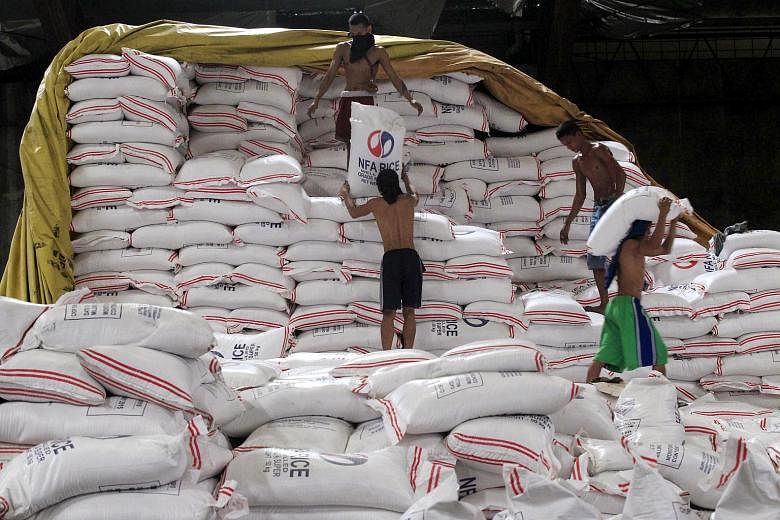MANILA (Reuters) - The new Philippines administration will bar private traders from importing rice and aims to stamp out rampant smuggling of the grain in the world's third-biggest importer, incoming Agriculture Secretary Emmanuel Pinol said on Wednesday (May 18).
The task of importing rice to ensure food security will now be solely in the hands of the state grains agency, the National Food Authority (NFA), Pinol said in a radio interview after the announcement of his appointment by President-elect Rodrigo Duterte on Tuesday.
Rice imports are politically sensitive in the Philippines, with the government pushing to keep tariffs high to protect local farmers but also sometimes needing to quickly import thousands of tonnes to ensure adequate domestic supplies.
"The directive of our president-elect is that there will be no more rice importation by the private sector. It will only be the NFA. And I can assure the Filipino people that rice smuggling will be stopped," said Pinol, a former governor of a southern Philippine province.
Private traders are currently allowed to bring in annual shipments of up to 805,200 tonnes with a 35 per cent tariff.
Rice importation is regulated by the NFA, which issues import permits and allocations to private traders via auctions, a practice prone to abuse because importers with permits can offer other importers and brokers the use of their permits for a fee.
In 2014, the Philippines moved to loosen restrictions on rice imports by reducing tariffs to 35 per cent from 40 per cent and increasing the volume of annual shipments covered by such tariffs to 805,200 tonnes from 350,000 tonnes.
ast week, Duterte's campaign spokesman Peter Lavina told Reuters a plan by the incumbent government to import an additional 500,000 tonnes of rice this year to beef up state reserves would be reviewed.
Lavina also said the new administration preferred to enter into the more transparent government-to-government deals in transacting rice imports.
The Philippines regularly imports more than a million tonnes a year of the food staple to meet demand from its growing population. Vietnam is the country's main supplier, though Thailand also usually ships in some rice.

